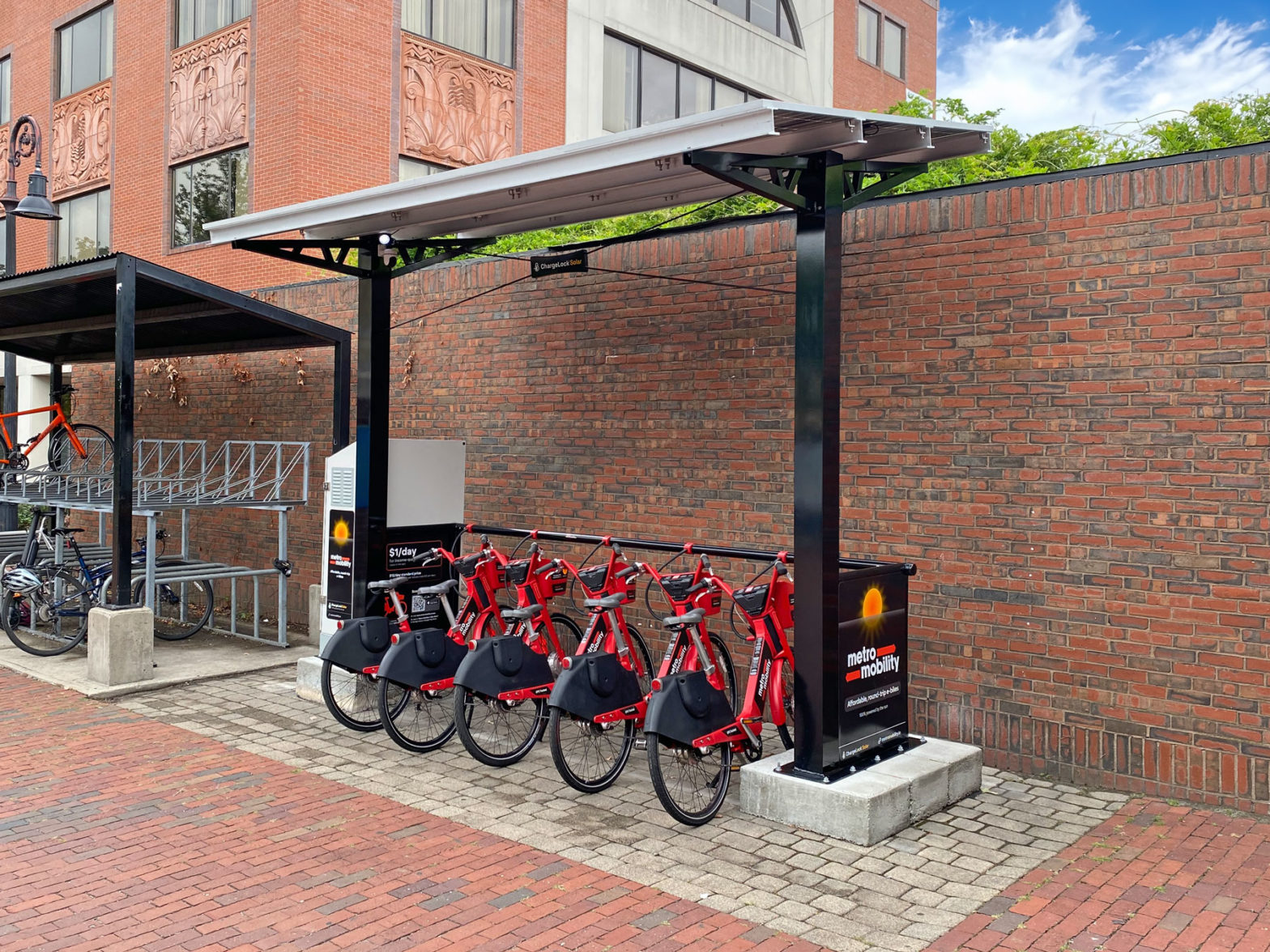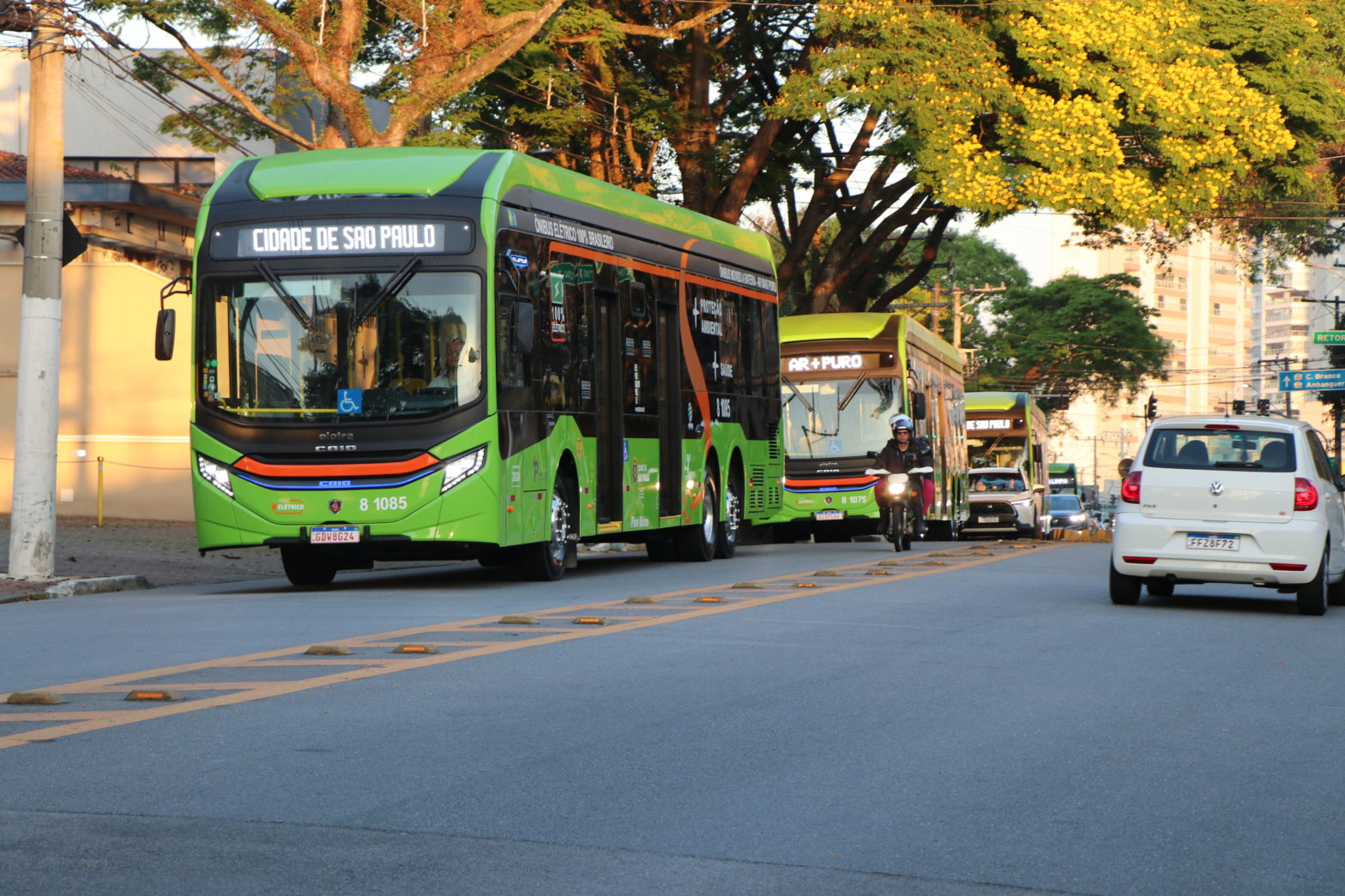
Solar energy powers new e-bike hub in Massachusetts
27 August 2025
by William Thorpe
The Massachusetts Bay Transportation Authority (MBTA) has introduced the state’s first solar-powered e-bike charging and rental station at Davis Square in Somerville.
Developed in partnership with Cambridge-based Metro Mobility and supported by the Massachusetts Clean Energy Center (MassCEC), the Davis Square ChargeLock Solar station is entirely off-grid, using rooftop solar panels and a storage battery to keep bikes charged year-round.
“Massachusetts is leading the way in creating a transportation future with more choices, fewer emissions, and bold innovations in solar energy,” said Monica Tibbits-Nutt, Massachusetts Secretary of Transportation and CEO of MassDOT. “The launch of our first solar-powered e-bike charging and rental station at Davis Square reflects our commitment to bringing innovative, sustainable solutions directly into communities–offering residents a cleaner, more affordable way to connect to local businesses, transit hubs, and key destinations.”
The patented ChargeLock Solar design uses a single smart cable that locks and charges bikes, avoiding the need for complex docking infrastructure or electrical connections. This allows the MBTA and its partners to expand stations quickly across the network, including suburban and underserved areas where riders often face first-mile/last-mile challenges.

“One of the benefits of completely off-grid electrified transportation is the flexibility to deploy the station anywhere without the need for existing electrical infrastructure,” Ryan Walas, CMO, Metro Mobility, told Cities Today. “ChargeLock Solar can be quickly deployed at other transit stations without the sometimes lengthy process of tying to the grid.”
Walas added that the system’s structure–a horizontal tube with mounted cables under a solar canopy–also makes manufacturing scalable. “The overall simplicity of the design and components allows production to be quickly scaled, and data from installed stations helps us refine cost and efficiency for future deployments.”
To improve access, the Davis Square hub offers discounted US$1 per day rentals for income-qualified riders. While this pricing is supported by grant funding, Metro Mobility says the round-trip, self-charging model reduces operating costs compared with point-to-point or dockless schemes.
“With our deployment model, rental pricing can be kept affordable for underserved communities without significant subsidies,” Walas said.
The MBTA and MassCEC will also collect data from the pilot to inform future deployments. The solar station and connected e-bikes measure energy output, trip patterns, and ridership trends. Users will be invited to complete surveys through the Metro Mobility app.
“This evidence will guide our decisions on where and how we expand, and ensure innovations like this meet both climate and community goals,” Tibbits-Nutt said.
Metro Mobility confirmed that interest in ChargeLock Solar is coming from beyond Massachusetts. “Traffic congestion, lack of access, and vehicle emissions are universal,” Walas said. “Our system can be adapted to different climates and deployed almost anywhere in the world at reasonable cost. This pilot shows that a reliable, accessible, zero-emission transport solution is possible now.”
For the MBTA, the project forms part of its wider efforts to improve multimodal access and integrate clean energy into transit services.
Image: Metro Mobility











